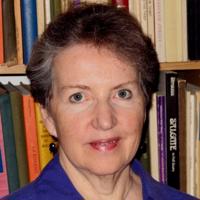Demystifying Research: Evaluating the Efficacy of the Feldenkrais Method®
Thursday 8th May 2025, 2:00 PM - 4:00 PM (London Time)
The Feldenkrais Method® belongs to a class of somatic methods often used in the voice studio to facilitate more efficient use of the body. In this age of ‘evidence-based practice’, it is important for the studio teacher/pedagogue/performer to be able to evaluate research claims. A basic understanding of research methods and biases inherent in the research process is necessary to properly evaluate their conclusions, especially if the research findings influence studio practice.
This course will explore some of the central principles of the Feldenkrais Method in terms of the science of the mid-20th century when they were developed as well as their validation based on contemporary advances in our understanding of neuroscience. Through the lens of modern neuroscience, we will examine a few peer-reviewed efficacy studies in the light the constraints of validity, reliability and objectivity.
Research methods may vary depending on the nature of the research or research question. In broad terms, research is either Quantitative, data statistically derived from experiments or surveys, or Qualitative, based on interviews, documents, or other human interactions. Most of the research involving efficacy of learning methods are quantitative. These types of studies are very effective when dealing with cause and effect such as in chemical interactions. However, when they involve human behaviour, such as in a study involving throwing a baseball, or somatic method such as Yoga or the Feldenkrais Method®, there are often too many variables to conclude reliable recuring outcomes. Validity and reliability depend on exact replication of results. Objectivity depends on neutral metrics, usually numerical values. Thus, many studies, as we shall see, claim that the methods studied are not as effective as claimed, because cause and effect is not easily measurable.
Marina Gilman
Marina Gilman holds a Bachelor of Science Degree from Indiana University, Master of Music degree from Ithaca College, and a Masters of Art in Communication Disorders...

Attend this course for as little as £22 as part of the Voice Professional Training CPD Award Scheme.
Learn MoreSorry, this is an archived short course...
We have plenty of upcoming short courses coming soon. See details of some of them below or look at the full list of short courses.

Thursday 19th February 2026
1:00 PM - 2:30 PM
Thursday 26th February 2026
1:00 PM - 2:30 PM
(London Time)
Performing Pain: Vocal Health in Emotional Roles!

Louisa Morgan
How connected are acted emotions to our real-life emotions? Are they expressed differently? Do they feel different in the body? This 2-part course with Louisa Morgan looks at the potential impact of acted emotion on vocal health, why we should consider it as voice practitioners, and how to care for our performers needing to work with it.


Tuesday 24th February 2026
5:00 PM - 7:00 PM
(London Time)
Incorporating CBT principles within vocal health and voice care

Dr Luke Aldridge-Waddon
Join Dr Luke Waddon as he introduces the principles and techniques within cognitive-behavioural therapy (CBT) in relation to the voice and voice care. He will discuss psychological factors relevant to the development and maintenance of voice disorders and how these might be approached from a cognitive-behavioural perspective. He will describe theoretical concepts and therapeutic components often used within CBT and consider how these might be applied when working with voice users.


Tuesday 3rd March 2026
5:00 PM - 7:00 PM
(London Time)
Sex differences in VOICE!

Dr Richard Lissemore
This two-hour workshop, led by performer, articulatory phoneticist, and voice physiologist, Dr. Richard Lissemore, will examine in detail the role that biological sex plays in the perception and pedagogy of singing voices. We'll consider how parameters such as anatomy, physiology, articulation, resonance, and radiated acoustics influence the perceptions and pedagogical decision-making of singing teachers.
